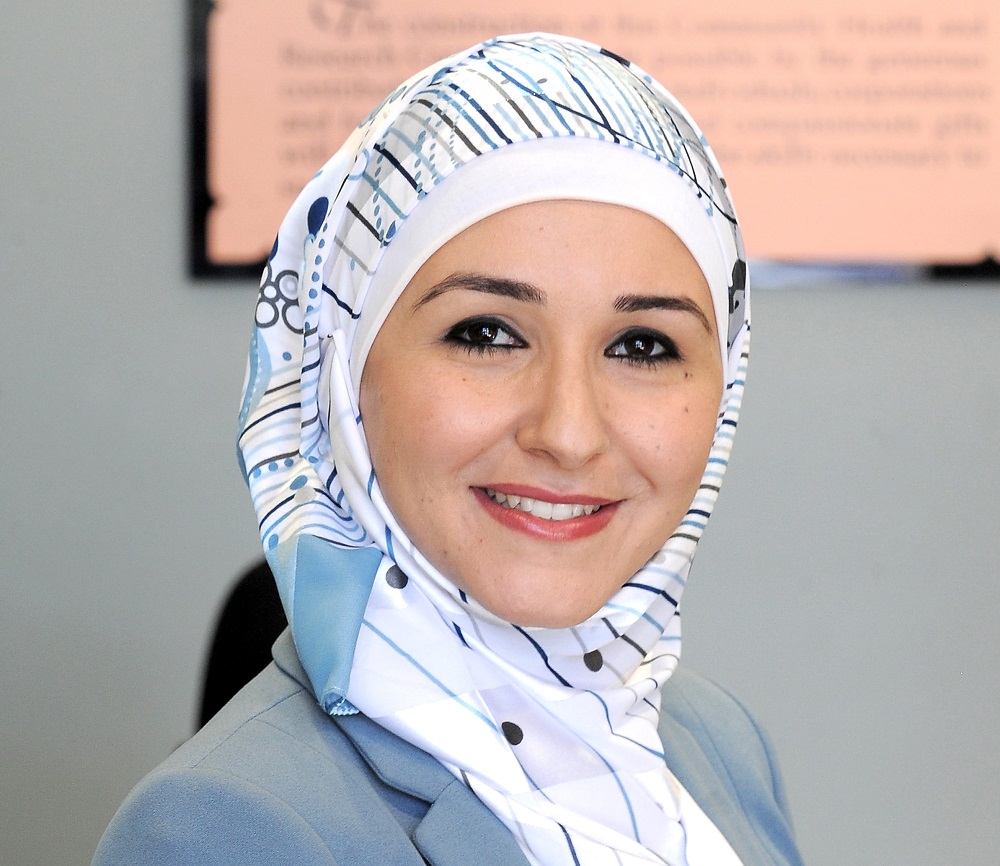A Wayne State University College of Nursing faculty member collaborating on School of Medicine research of refugee children and their parents was awarded the 2021 Brain and Behavior Research Foundation Young Investigator Grant to study the impact of trauma on psychobiological development and behavioral outcomes among children of Syrian refugees living in the United States.

Dalia Khalil, Ph.D., R.N., is an assistant professor of Nursing. Her collaborator and mentor on the two-year grant, “Psychobiological Factors Affecting Mental Health among Immigrant and Refugee Parents and their Children,” is principal investigator and Associate Professor of Psychiatry and Behavioral Neurosciences Arash Javanbakht, M.D.
Her goal is to guide the development of interventions to prevent the negative effects of trauma on childhood outcomes by understanding the mechanisms through which stress and trauma among immigrant and refugee families influence parents, and ultimately their children.
Dr. Khalil researches the impact of parents’ stress, depression and trauma on children and infants among refugee and immigrant families. With Dr. Javanbakht, she will focus on the impact of trauma on psychobiological development and behavioral outcomes among children of Syrian refugees who were followed up with since they first came to the United States. She will be involved in the longitudinal analysis of trauma-related symptoms in children and will identify biological and psychological factors contributing to vulnerability and resilience.
The study will be an addition to Dr. Javanbakht’s ongoing project, “Biological and Environmental Factors Affecting Risk and Resilience Among Syrian Refugee Children,” funded by the Eunice Kennedy Shriver National Institute of Child Health and Human Development (R01HD099178).
“I will use the existing cohort of immigrant and Syrian refugee children ages 7-18 and their parents who settled in the United States starting in 2016, exploring longitudinal changes in symptoms of anxiety, depression and posttraumatic stress disorder, as well as behavioral and telomere length correlates,” Dr. Khalil said. “I will follow the cohort collecting self-reported measures of anxiety, depression and PTSD, buccal swab telomere length (DNA) samples, and children behavioral outcomes. We will compare a group of immigrant children and a group of refugee children along with their parents in both groups. This will enhance our understanding and advance efforts to improve children outcomes and reduce the risk for mental health problems associated with childhood trauma.”
The project team also includes Stacy Drury, M.D., Ph.D., as a consultant from Tulane University, and Thomas Templin, Ph.D., a statistician from the WSU College of Nursing.